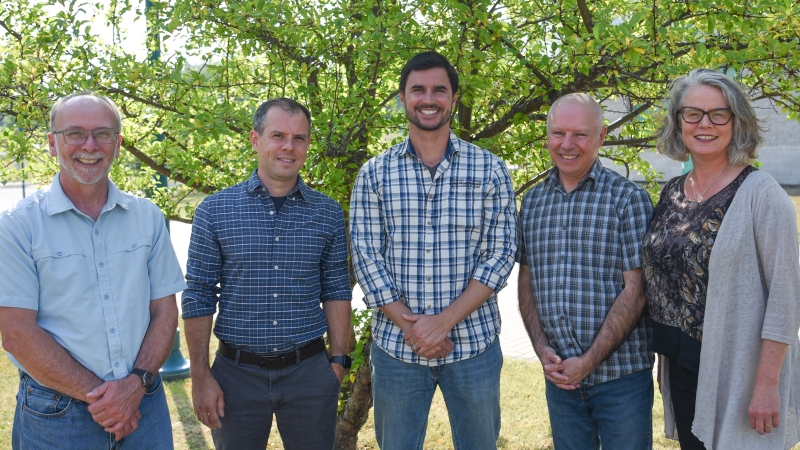UNBC research group launches third phase of Nechako River Basin study
Building on earlier findings, the Integrated Watershed Research Group will embark on the third phase of an interdisciplinary research project with the overarching goal of enhancing readiness for comprehensive responses to the dynamic relationships between climate, water and communities within the Nechako River Basin.

A group of researchers from the University of Northern British Columbia has secured $800,000 in funding to continue exploring important issues surrounding the Nechako River Basin.
The Integrated Watershed Research Group (IWRG) of UNBC has received a $400,000 grant from the Nechako Environmental Enhancement Fund (NEEF) and another $400,000 in matching funds from other sources for Phase 3 of an interdisciplinary research project that began in 2014.
"NEEF is proud to provide funding to support the UNBC Integrated Watershed Research Group for the continuation of research in the Nechako Watershed,” says NEEF Society Chair Ray Pillipow. “This research will support the key objectives of NEEF by establishing a greater understanding of factors needed to assist informed management decisions that benefit the Nechako Watershed and those who rely upon it.”
The interdisciplinary research group includes Natural Sciences and Engineering Research Council of Canada/Rio Tinto Senior Industrial Research Chair in Climate Change and Water Security Dr. Stephen Déry, Ecosystem Science and Management Associate Professor Dr. Eduardo Martins, Forest Renewal BC Endowed Chair in Landscape Ecology Dr. Phil Owens, and School of Health Sciences and Northern Medical Program Professor Dr. Margot Parkes.
“Our researchers have developed connections with a broad network of collaborators, colleagues and watershed partners during the first two phases of this research,” says UNBC President Dr. Geoff Payne. “This funding positions them to leverage their experience and expertise to address emerging issues in the Nechako River Basin and to inform conversations and research on climate change and sustainability that are happening around the world.”
IWRG’s earlier research examined a range of issues: from analyzing the impact of observed climate change on water temperature and streamflow volumes in the Nechako River; to studying the impact of land use change and wildfires on river sediment sources and sediment quality; to the development and use of a web-based portal by watershed partners highlighting overlapping environment, community and health issues and encouraging integrative approaches to decision-making about the watershed.
“Our research and events such as the 2021 summer heat dome and autumn land-falling atmospheric rivers experienced in B.C. and the 2023 summer drought conditions and associated wildfire activity are showing us the global climate crisis is a cross-cutting driver of watershed change,” says Dr. Stephen Déry. “It is clear to our team that an interdisciplinary approach remains essential to addressing the complex interactions among climate change, land use, watershed dynamics and ecological approaches, all of which have far-reaching implications for the communities living in the Nechako River Basin.”
“Building knowledge helps build resilience,” says Dr. Margot Parkes. “The overarching goal of this research project is to strengthen preparedness for integrative responses to climate, water and community connections in the Nechako Watershed.”
“UNBC’s research efforts are furthering our comprehension of the Nechako River ecosystem, the challenges posed by climate change and the broader interplay between the environment and community well-being,” says Rio Tinto’s Director of Energy and Watershed Partnerships Andrew Czornohalan. “This project is in line with NEEF objectives and contributes to advancing science.”
The Nechako Environmental Enhancement Fund was established as part of the BC/Alcan 1997 Agreement between the Province of BC and Rio Tinto. As part of the agreement, Rio Tinto has committed to contributing up to $50 million to the NEEF on a matching dollar basis.
